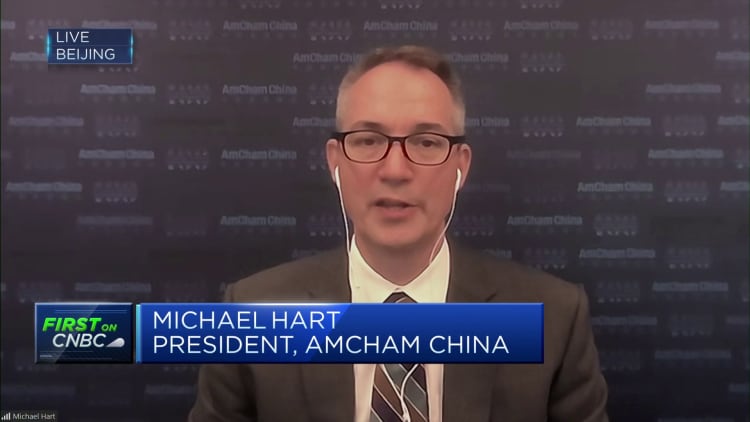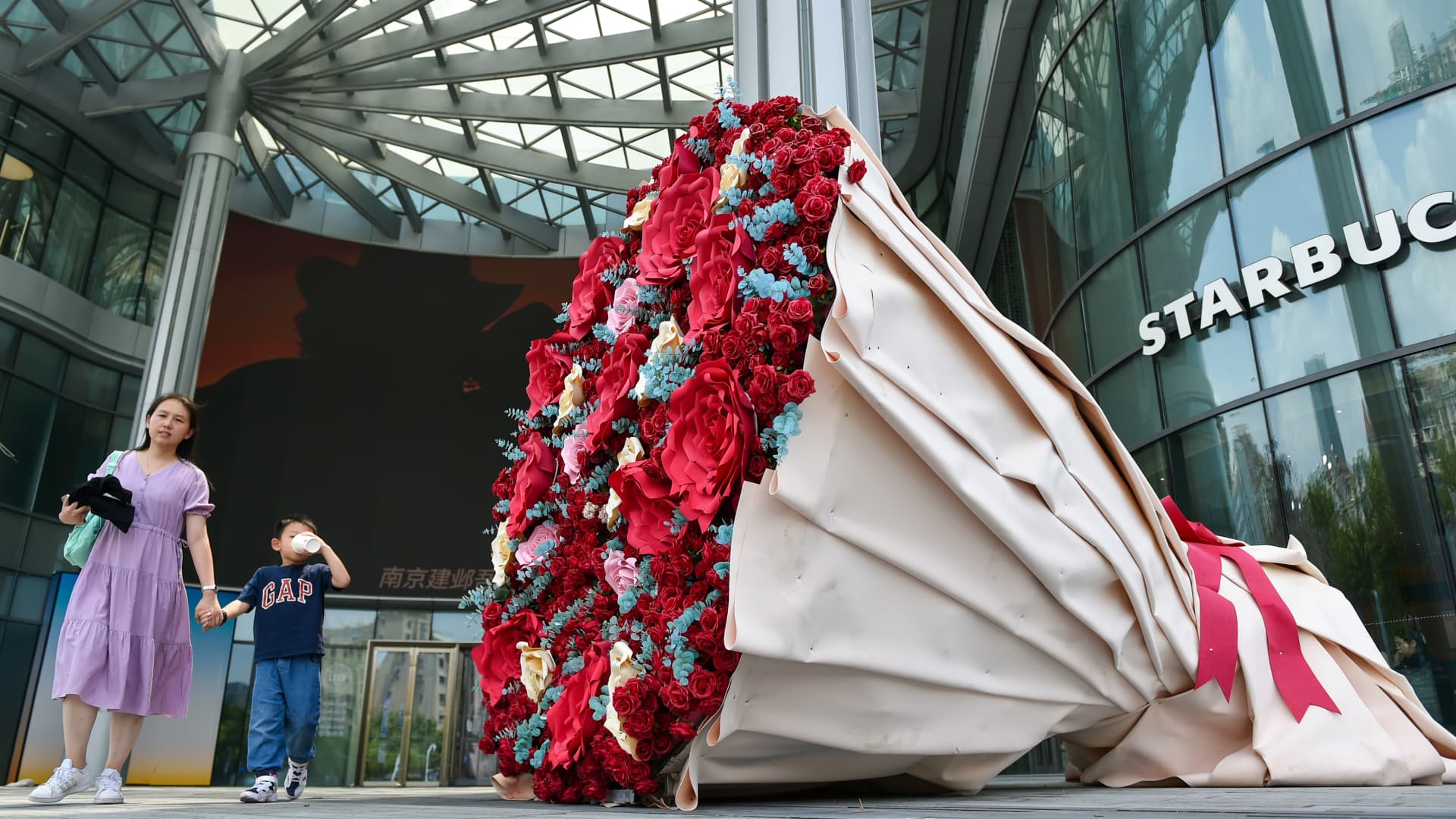Larger-than-life roses are on display in Nanjing, Jiangsu province of China, on Aug. 21, 2023, one day before the Qixi Festival.
Vcg | Visual China Group | Getty Images
BEIJING — Consumer spending bounced back in August after a tepid July, according to the China Beige Book’s survey of Chinese businesses released Thursday.
All five categories — apparel, automotive, food, furniture and appliances and luxury — saw a marked increase in sales this month, versus July, the report said.
That’s based on a survey conducted Aug. 17 to 25 of 1,300 businesses, the majority of which were not state owned.
Retail sales rose by a muted 2.5% in July from a year ago, adding to concerns about China’s future economic growth. The National Bureau of Statistics had also released retail sales from services on a year-to-date basis, which was up 20.3% from a year ago.
In August, “the Services sector ‘revenge spending’ basket saw continued strength, with travel and chain restaurants maintaining their high growth momentum and sales jumping in hospitality,” the China Beige Book report said.

Domestic travel has seen a surge of activity this summer. In a report Monday, Nomura analysts found the seven-day moving average of domestic flights remained more than two times greater than what it was in August 2019.
The China Beige Book survey also found that corporate borrowing surged as cost of capital declined.
That contrasts with July credit data that showed a slump in demand from households and businesses that month to borrow money for the future.
Other data for July have depicted a dismal picture. In a report distributed on Aug. 15, JL Warren Capital estimated Louis Vuitton sales in mainland China fell by 5% to 10% in July — the first year-on-year decline so far his year.
The month-to-date or August “decline has accelerated but could narrow as Chinese V-Day on August 22 approaches,” the report said.
The Chinese version of Valentine’s Day, called the “Qixi Festival,” is typically celebrated by giving gifts and going out for dinner.
In the last several weeks, the Chinese government has announced a slew of measures to support the economy. Their targeted nature has fallen short of many investors’ hopes for larger-scale stimulus.
Another business survey released in mid-August, the CKGSB Business Conditions Index, reported a 50.9 print for July, a touch above the 50.02 figure recorded for June.
“Coming after months of downward trending figures, even this tiny upshoot of confidence is welcome,” the CKGSB report said. Its read on employment was the same in July as it was in June: 54.2. Readings above 50 indicate expectations for an increase.
China’s official unemployment rate for people working in cities has remained just above 5% in recent months. The jobless rate for young people ages 16 to 24 has soared — the National Bureau of Statistics did not release a number for July and said it was suspending the data report.
Real estate
The latest China Beige Book survey found that “jobs growth re-accelerated into August, with every sector seeing faster hiring save Property.”
However, China’s massive property sector continued to worsen in August, the survey found.
House prices barely grew, and were on the verge of dropping, the survey found. The analysis cited realtors as saying home sales “fell dramatically” in August.
Much of Chinese household wealth is in property. The sector has slumped in the last few years amid a government crackdown on high debt levels in the industry.

